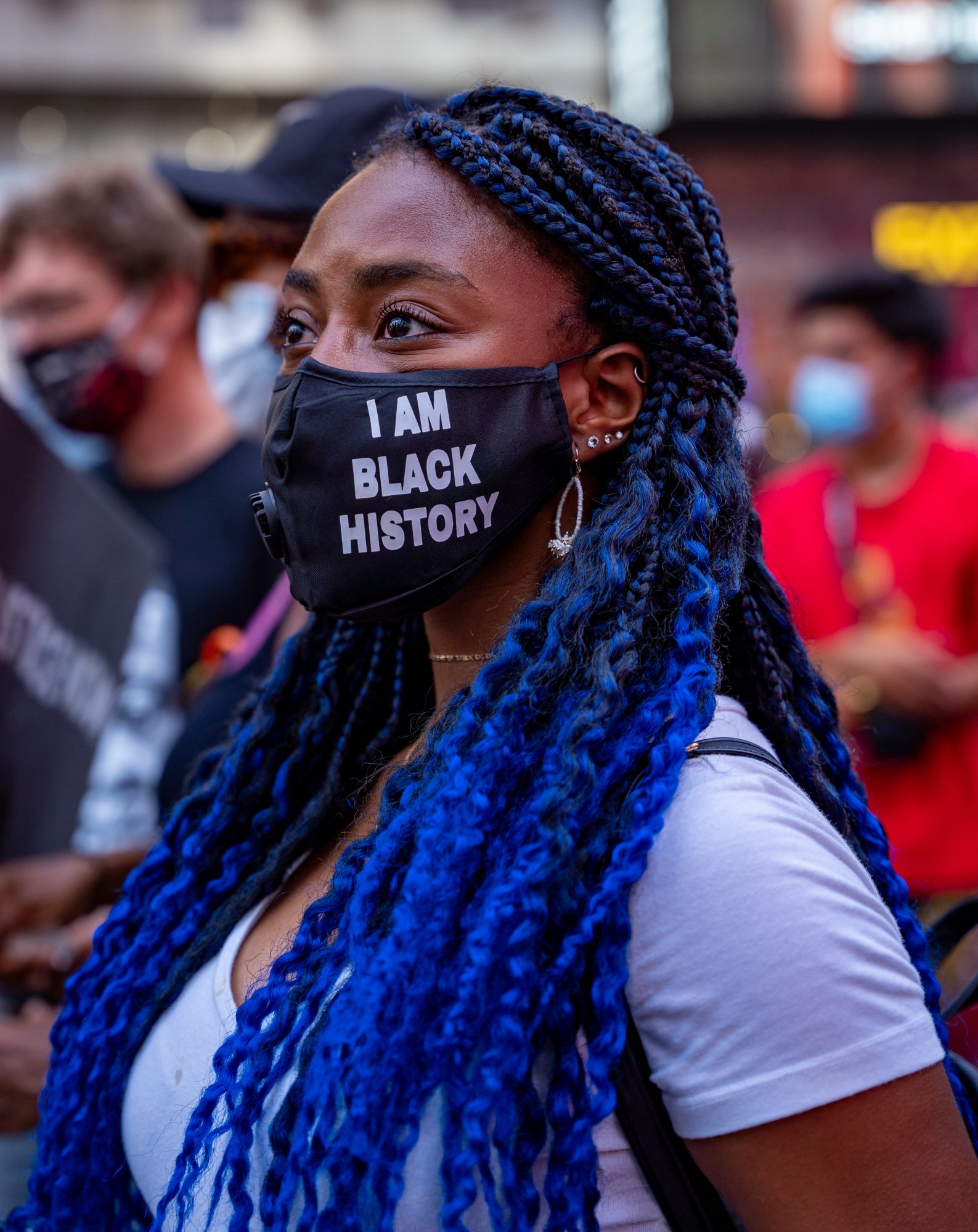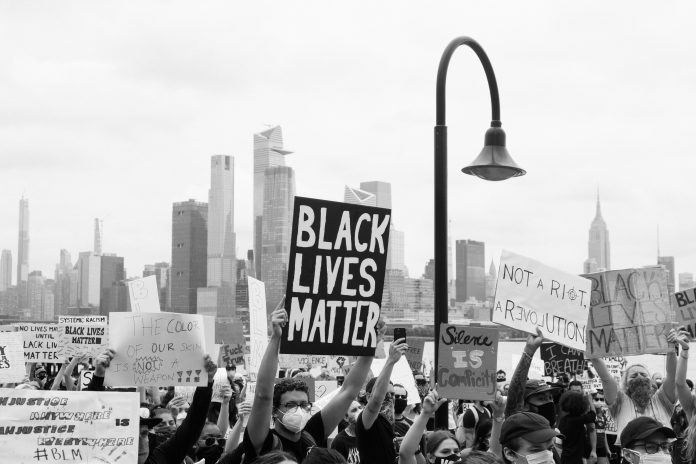Black Lives Matter protests bring public attention to incidents of police brutality, and have shifted racial discourse, increasing interest in anti-racist ideas
Black Lives Matter protests, as seen after the murder of George Floyd in 2020, have fuelled racial discourse and have created sustained interest beyond the singular events – having a lasting impact on the way people think and talk about racism.
Black Lives Matter, most notably a hashtag, is a movement to tackle racism, discrimination and inequality experienced by Black people. The three female founders of the movement, Alicia Garza, Patrisse Cullors, and Opal Tometi, created a national network between 2014 to 2016. The movement predominantly focuses on abolishing over-policing, police brutality and the discrimination Black people face in the US and across the world.
According to research led by Indiana University researchers, broader issues such as systemic racism, redlining, criminal justice reform and white supremacy are now far more searched and discussed on online platforms.
The paper, “Black Lives Matter protests shift public discourse”, examines social media searches on Google, Twitter and Wikipedia to measure the interest in Black Lives Matter protests and what racial discourse was most prominent.
The researchers analysed 41 related terms, including “systemic racism” and “mass incarceration,” from 2014-2020, finding that there was a ‘spillover effect’ to new ideas and there were sustained interests across all platforms.
The Black Lives Matter took off in 2013, after the murder of 17-year-old Trayvon Martin
The researchers, Rojas, Yan and Ince, previously collaborated on a paper regarding how people use the Black Lives Matter hashtag to bring awareness to the movement, which started in 2013 after George Zimmermann was acquitted of killing 17-year-old Trayvon Martin.

Since then, they have expanded on their work, writing a book about Black Lives Matter, including the impact of BLM protests.
Using this knowledge, this led them to examining social media searches on Google, Twitter and Wikipedia, plus national news mentions, to measure the interest in Black Lives Matter protests and what people were talking about – using 41 related terms, including “systemic racism” and “mass incarceration,” from 2014-2020.
The viral spikes in “Black Lives Matter” searches were as expected, however there was a surprise with the spillover effect to new ideas and sustained interest – as seen with comparing tweets from August to December 2020 to the same time period in 2019, the mentions of “systemic racism” increased ninefold, “police brutality” quintupled and “redlining” doubled.
In 2020, the discussions went well beyond police shootings or police brutality and the victims.
Racial discourse about the structural conditions that invoke the current situations in which Black communities are policed
Zackary Dunivin, the lead author at Indiana University Bloomington, said: “It’s significant because it means the protests, these small periods of energy and attention, have lasting impact in terms of what ordinary people are talking about in our daily lives. That’s showing that the protests are changing the landscape of what is relevant in our minds.
“In 2020, George Floyd is killed and people are thinking about policies and practices that led to neighborhood segregation and the exclusion of Black families from the growth of the middle class from the 1930s, ’40s and ’50s. That’s really an astonishing connection.
“One man is killed on video and people are connecting it to this 70-year-old history. They may say we disagree that these are problems, but you still got them to be talking about it. If you can’t get anyone to talk about it, you’ll never get anyone to recognize that it’s a problem.”
Though these search terms do not fully signify support for the movement, the researchers highlighted that it can indicate that people are trying to learn more through racial discourse to better understand racism and its impact.
Rojas further said: “The way we talk about race in the country is being shifted because of the protests. There’s a new way to talk about race. That was exciting to find.”











